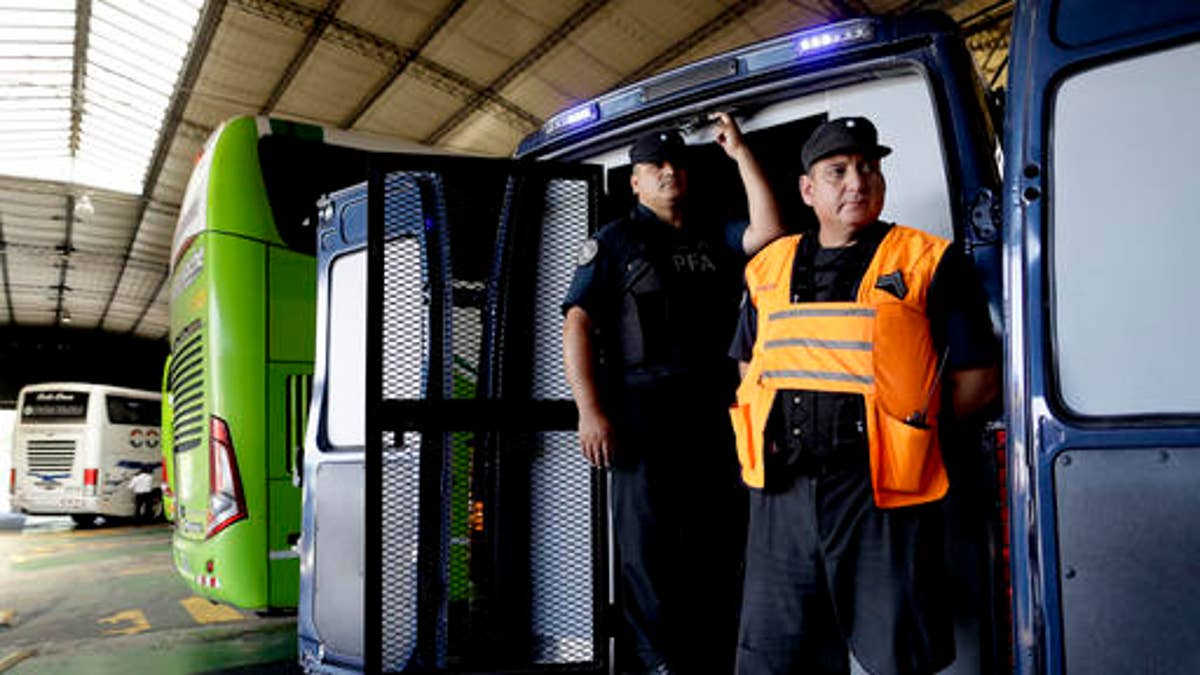
Police guard vehicle holding bags confiscated at a bus station on the outskirts of Buenos Aires, Jan. 27, 2017 (AP)
Seeking to curb a spike in crime that remains a top concern across the country, the president of Argentina signed a decree that greatly toughens its immigration law to fast-track the deportation process and bar entry to foreigners with criminal records.
The decree also greenlights the prompt deportation of thousands of foreign inmates currently serving sentences in the South American country.
In explaining the overhaul, the government noted that immigrants make up to 21.35 percent of the prison population and that of those convicted of drug trafficking, 33 percent are foreigners.
Related News...
More than three-quarters of migrants who arrived in Argentina between 2011 and 2015 came from Paraguay, Bolivia and Peru, according to Argentina's Interior Ministry. Citizens of those countries do not require a tourist visa to enter and stay up to 90 days.
"Faced with the recent notorious acts of organized crime, the government has had enormous difficulties in enacting deportation orders against foreign nationals as a result of the complex, repetitive procedures that in some cases can take seven years to process," President Mauricio Macri said.
He said reasons for blocking foreigners from entering and staying in the country include "having once been sentenced or currently serving a sentence, or having a criminal record or a sentence under appeal" in Argentina or abroad.
This applies to crimes that, according to Argentine laws, deserve jail time, such as trafficking arms, humans or drugs, organs or tissues, or for money laundering or investing in illicit activities.
It also covers those who profit from prostitution, or who have been found guilty of crimes of corruption.
As exceptions, the government noted that under certain conditions it could admit foreigners "for the humanitarian reuniting of families or for having efficiently aided the justice system" or those who have committed crimes that in Argentina would not be sentenced to more than three years in prison.
This hardening of Argentina's immigration policy has been debated for the past several weeks, with members of the opposition and social organizations accusing the government of using "slanted" statistics to place the blame squarely on foreigners for the crimes of drug trafficking.
Human rights advocates said it risks stigmatizing foreigners who make up 4.5 percent of the 40 million people living in Argentina.
"Amnesty International considers that it's a mistake to reduce the migration phenomenon to a debate on national security that associates migrants with criminals," the rights organization said in a statement Monday.
"Even when States have the authority to establish rules in migratory issues, they can't violate the rights guaranteed under the constitution and international human rights treaties," it added.
The AP, EFE and Reuters contributed to this report.








































